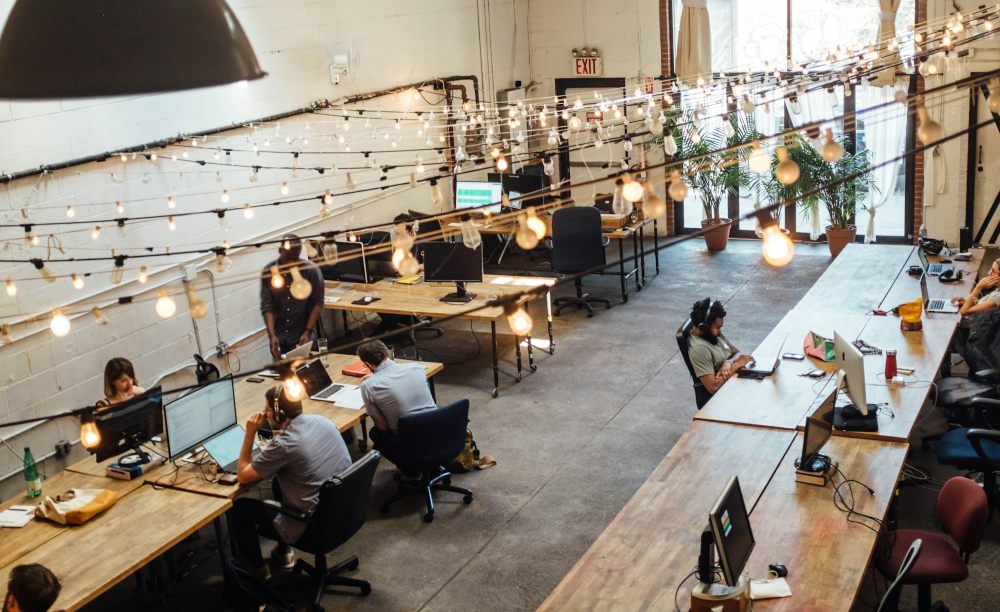It’s a moral imperative that Irish businesses take climate action seriously, writes Michael O’Hara of Techies Go Green.
Ireland is facing a climate reckoning. Failure to meet greenhouse gas emission reduction targets under EU law could cost us up to €26bn by 2030. However, this isn’t just a financial issue; it’s a profound moral responsibility on all of us to protect the planet for future generations.
While large corporations and the public sector receive most of the attention, there is also a real opportunity to mobilise Ireland’s circa 389,000 SMEs – accounting for 99.8% of all active enterprises in Ireland (CSO). Individually, they may have small footprints, but together they represent a massive force.
“Ireland needs all hands on deck. SMEs, with their agility and innovation, are ideally placed to lead on local climate solutions, from energy efficiency to circular economy practices”
Every product or service we consume originates from a business, so all businesses – of every size and across every sector – must take the lead in cutting emissions. Only then can Irish citizens make lower-carbon choices and move our country towards Net Zero.
The cost of inaction
The potential €26bn fine should be a wake-up call. This figure represents nearly 22% of Ireland’s current national budget of €120 billion for 2025 and, if realised, would have a direct financial impact on our people. Paying for such a penalty would likely require higher taxes or reduced public spending—putting pressure on essential services like healthcare, education, housing, and transport. On a per-person basis, this equates to approximately €4,900 for every citizen, or nearly €20,000 for a family of four.
“Going green isn’t just good for the planet; it’s smart business”
The €26bn shouldn’t be viewed as a one-off fine either. It is likely just the beginning given that the EU’s climate targets don’t stop in 2030. In fact, the European Climate Law requires net-zero emissions by 2050, with stricter annual targets between 2030 and 2050. If Ireland continues to miss its targets, fines or the cost of buying emissions allowances (carbon credits) will continue year after year.
Beyond the financial cost, this level of inaction could damage Ireland’s global reputation, reducing investor confidence and making the country less attractive to international companies which prioritise sustainability. It would also crowd out investment in vital infrastructure and climate adaptation measures, stalling economic progress and innovation.
The burden would not be distributed equally either. Lower-income households already struggling with the cost-of-living crisis would feel the impact more acutely if public supports had to be cut. Additionally, failing to take climate action now will only increase the long-term economic damage caused by extreme weather, disrupted food supply, and biodiversity loss.
Businesses that act now will benefit from showing initiative, being innovative, and driving efficiency. Meanwhile, those that delay will face rising costs, declining competitiveness, and mounting public pressure. But the real risk is being left behind as the world transitions. Delaying climate action means higher costs, lost opportunities, and a weaker global standing.
Purpose over profit
The UN defines sustainability as meeting the needs of the present without compromising the ability of future generations to meet their own needs. All businesses have a responsibility here – they must operate in ways that minimise waste, conserve resources, and protect biodiversity. We don’t have the right to exploit the Earth for short-term gain.
Again, climate change is often felt the most by the most vulnerable, with extreme weather events, rising prices, and supply chain disruptions having the biggest impact on the communities with the least. By taking action now, businesses have the power to create a more resilient, equitable future for all.
Making this a reality requires ethical leadership. Leading on climate means doing the right thing even when it’s hard. It goes beyond profits. It takes into account people, communities, and ecosystems. That means not just being the business which produces sustainable products but being the business that empowers consumers’ value-driven choices. It’s not just being an employer that has three bins for organising waste; it’s being an employer that stands for something and attracts people with a shared purpose. It’s not about being a company that appeals to investors with impressive financials; it’s being a company that has resilience and a long-term vision.
For decades, the dominant business philosophy—championed by economist Milton Friedman, was profit above all else (New York Times). That view has shifted. All businesses today must serve all stakeholders: employees, customers, suppliers, communities, investors, and the planet. Sustainable businesses are those that balance profit with social and environmental good.
Part of that comes down to having climate action credibility. Today, greenwashing isn’t just unethical, it’s bad for business. Stakeholders expect honesty, transparency, and results. Real credibility comes from setting targets, reporting progress, and genuinely cutting emissions. Leading Irish businesses which do this have a chance to build trust and align with global sustainability trends.
Besides, being green isn’t just good PR, it’s smart strategy. It attracts talent, boosts investor confidence, and increasingly influences contract awards. Sustainability is becoming a strategic necessity and a competitive edge.
A national call to SMEs
Ireland needs all hands on deck. SMEs, with their agility and innovation, are ideally placed to lead on local climate solutions, from energy efficiency to circular economy practices. There’s also growing support available: SEAI grants, green loans from SBCI, and more. What’s needed is the knowledge and determination to act.
After all, the desire to go green might be there but it’s an entirely different thing to achieve it. This is something that we see all the time at Techies Go Green and it’s precisely why our community exists – a lot of organisations simply don’t know where to begin when it comes to their green journey. By collaborating and sharing knowledge, coupled with setting goals and measuring outcomes, SMEs can reduce their carbon emissions and drive measurable change. They can create a more sustainable business culture across Ireland and inspire wider industry action.
To do this, organisations need to view climate action for what it is: a moral duty. Irish businesses have the power to shape a better future. And if saving the planet isn’t enough of a motivator to make businesses act, surely the opportunity for competitive advantage will. To be clear, companies that are more sustainable will be much more successful in the years to come. In other words, going green isn’t just good for the planet; it’s smart business.
Main image at top: Photo by Thomas Richter on Unsplash
-
Bank of Ireland is welcoming new customers every day – funding investments, working capital and expansions across multiple sectors. To learn more, click here
-
For support in challenging times, click here
-
Listen to the ThinkBusiness Podcast for business insights and inspiration. All episodes are here. You can also listen to the Podcast on:
-
Spotify
-
SoundCloud
-
Apple




